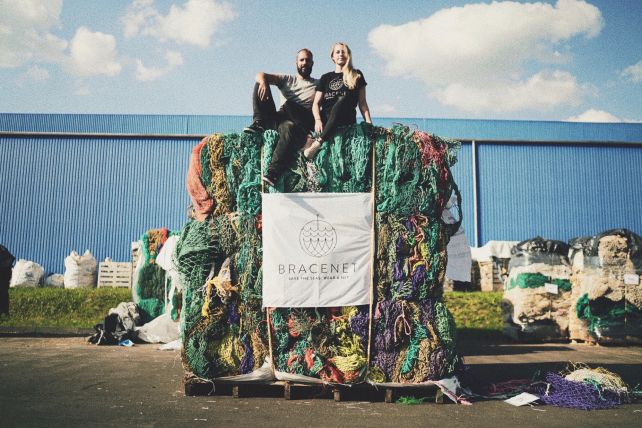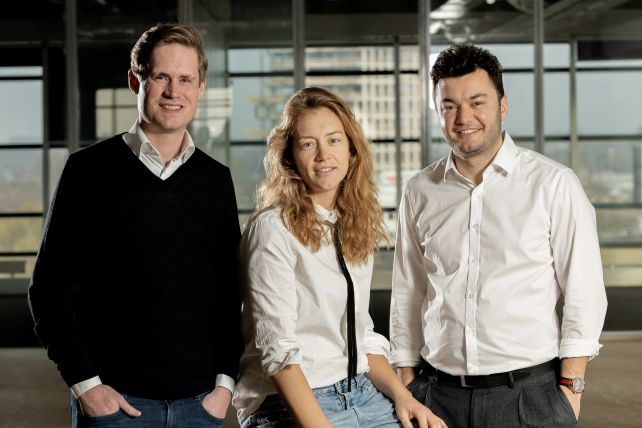Hamburg-based startup expands its business model and collects old clothes free of charge per e-bike.
Waste paper, used glass, returnable containers, used clothing - almost everyone has a box at home that is emptied far too seldom. That was also the case in the apartment shared by Nadine Herbrich and Alessandro Cocco. This state of affairs prompted the idea of founding a startup that caters to precisely this problem, saves resources and promotes a circular economy.
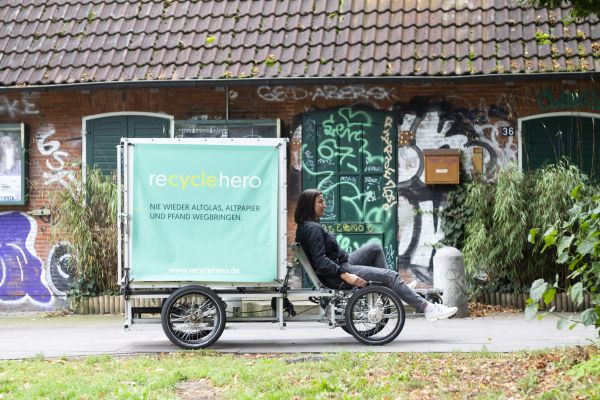
Their idea eventually led to the launch of the recyclehero pilot project in 2018. Customers pay to have recyclables picked up once or on a regular basis that would otherwise simply pile up. Initially, it was a side job for Nadine and Alessandro. "We started with one cargo bike and a few customers from the gastronomy sector. If someone dropped out then, we just jumped on the bike ourselves", Nadine said in the interview.
Plenty has happened since then. Recyclehero became a limited company in early 2020, expanded both the team and the range of services, and started several social projects. All that was in addition to the startup’s core business offers for restaurants, offices, shops and homes. Seven drivers now hop on cargo bikes and pedal away. Among them are formerly unemployed persons, who gain a low-threshold entry into the labour market. All this has unfolded despite a pandemic that nearly brought the business to a complete standstill shortly after the "real" launch.

Pandemic: Time for social engagement
When everyone suddenly found themselves sitting at home during corona, taking away old glass, wastepaper and deposits went from being a chore to a welcome change. Recyclehero bikes did not simply remain standing. Instead, the team racked their brains to come up with a good idea for the cargo bike's suddenly freed-up capacity.
So, recyclehero teamed up with the Straßenblues association and TV chef Tarik Rose to deliver soup, drinks and toiletries to the homeless. Straßenblues provided insider tips on where best to help, Tarik provided the soups, and recyclehero co-ordinated the undertaking and delivered the meals to the right places.
The whole thing was financed from their own resources and through crowdfunding and grew steadily over half a year. "I was also able to win over the Junge bakery for the project. Then we were able to pick up fresh rolls and drinks every day on every trip and deliver them too,” said Nadine. The co-operation grew and grew. In the end, the cargo bikes delivered masks and disinfectant to Hamburg's homeless.
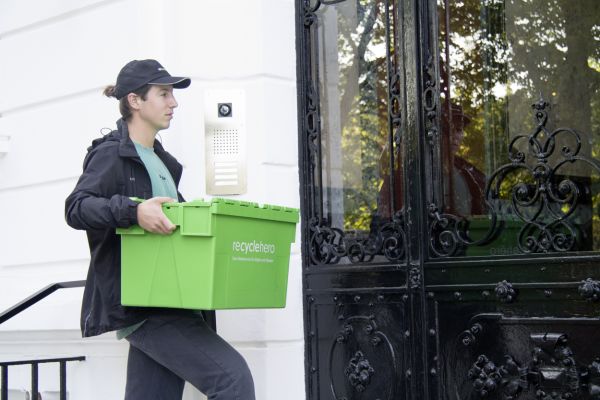
Back in the saddle and on the way forward
But a company cannot survive on social commitment alone. For this reason, recyclehero has returned to its core business after the lull in the pandemic. Now glass, wastepaper and, most recently, old clothes are being collected from private individuals and companies again. Almost half of the customers are households while restaurants, offices and shops account for the other half.
Yet, the social commitment has not disappeared and the startup is still involved with, for instance, the Wärmebärt project in which homeless people are given hot-water bottles for cold nights. Recyclehero is now looking at ways of putting the collected old clothes back into circulation. The goal is to create a local circular economy in which nothing is thrown away.
The so-called "fast fashion industry" ensures that garments do not last long and must be disposed of. Moreover, clothes are frequently made of mixed fibres, which are particularly difficult to recycle. Naturally, the startup wants to keep high-quality clothing in use for as long as possible.
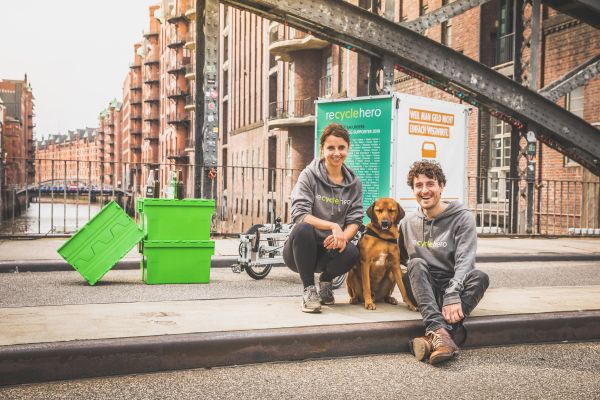
"As things stand, you could dress everyone in the world for 30 years with the existing clothes. That means we wouldn't need any more collections for now. Nothing new would have to be brought out,” said Nadine.
One of the startup’s bright ideas involves selling textiles to artists and upcycling and downcycling initiatives for their projects at a fixed price per kilo. The clothes are sorted and categorized and put back on sale at the same time. The impact startup has joined forces with the non-profit association Hanseatic Help and second-hand shops, among others.
Rubbish and old clothes are piling up not only in Hamburg. For this reason, recyclehero wants to expand to Hanover and Munich first and to other cities later. The plan is to gain more experience and to improve the infrastructure even further. Alessandro and Nadine hope to tackle the mountainous problem of waste later in other cities through franchising. Each city will get its own, appropriate solution. "The issue of waste disposal is very location-specific,the structures differ everywhere", explains Nadine. At the same time, recyclehero will expand the offer to suit the various locations. Electronic waste, for instance, could be collected straight from the doorstep in future.

